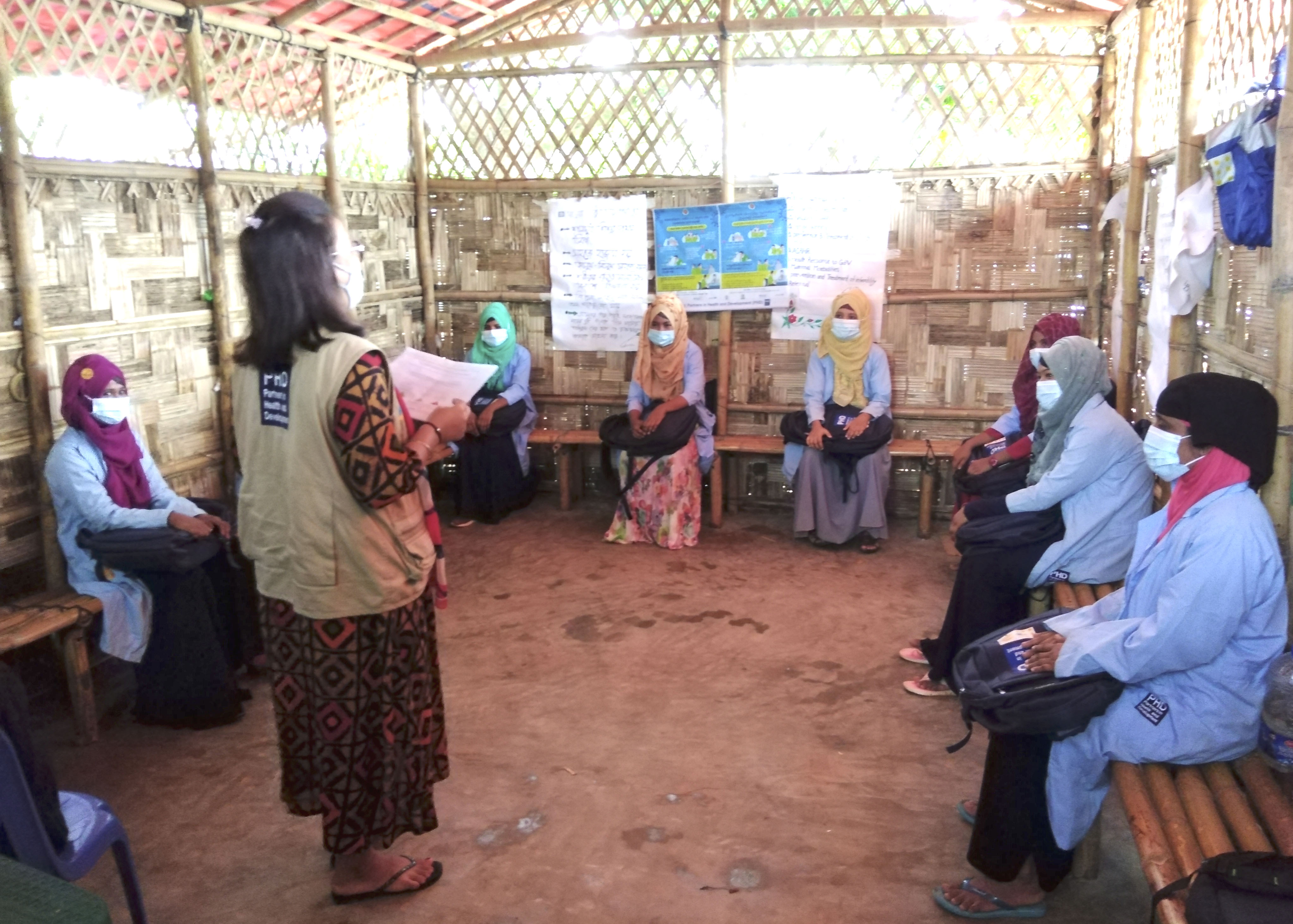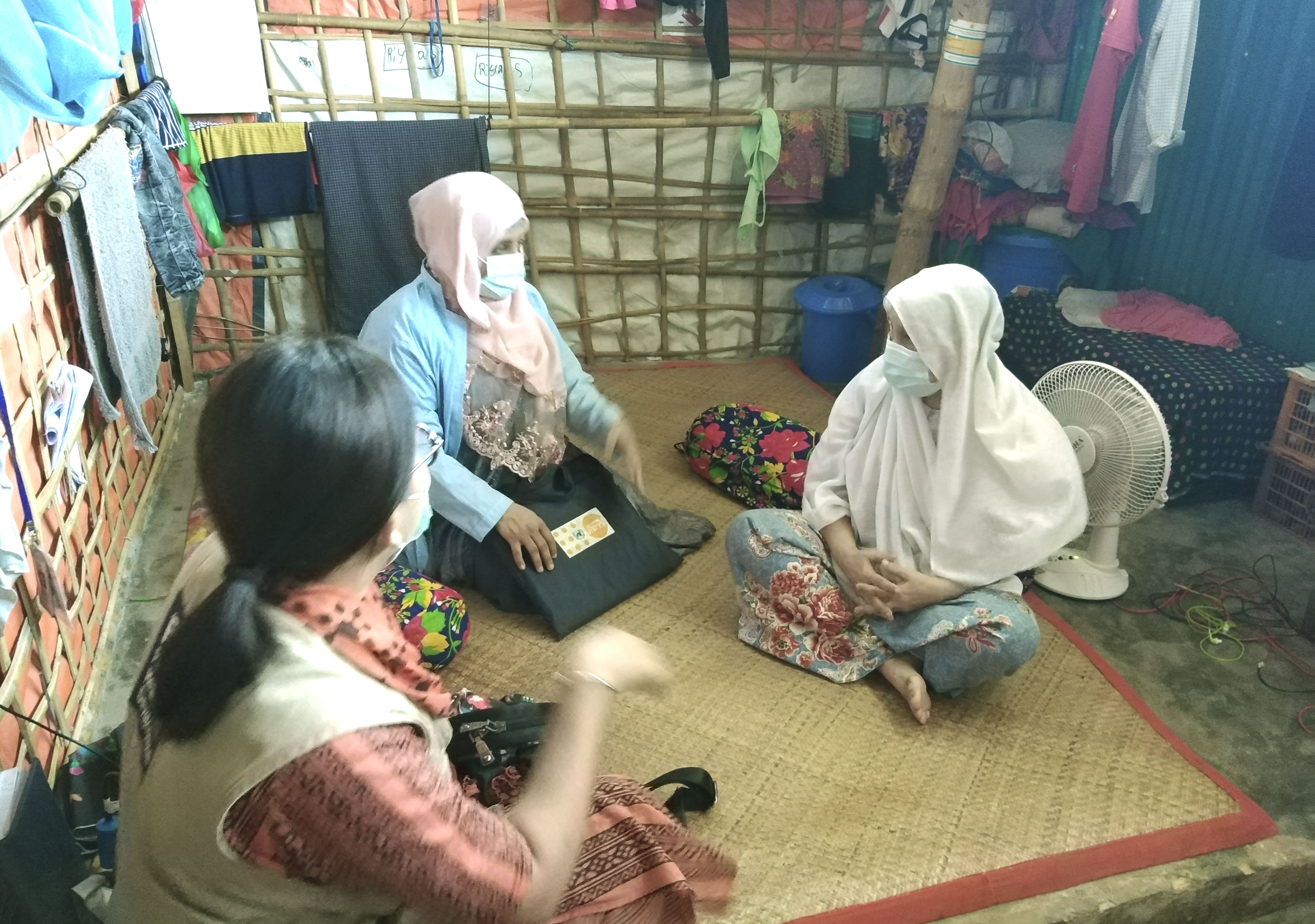|
Community Based Maternal, Neonatal Sexual & Reproductive Health Program consistently responding to the Covid-19 emergency for the Rohingya and Host Community in Cox’s Bazar.
Donor - UNFPA Bangladesh with multi-donor support
|
 COVID-19 is not only claiming thousands of lives every day but also threatening other non-COVID health issues like maternity services including institutional delivery, contraceptives usage with each passing day. From the beginning of the COVID-19 pandemic, PHD, through its’ MNRHP project with UNFPA, has been relentlessly working for the people of Rohingya community and the host community (five unions), with more robust action against the COVID-19 along with maternity, neonatal care, STI, GBV and ASRH as pandemic response. Key interventions by PHD-MNRHP for eventual subsidence of the COVID-19 pandemic include: COVID-19 is not only claiming thousands of lives every day but also threatening other non-COVID health issues like maternity services including institutional delivery, contraceptives usage with each passing day. From the beginning of the COVID-19 pandemic, PHD, through its’ MNRHP project with UNFPA, has been relentlessly working for the people of Rohingya community and the host community (five unions), with more robust action against the COVID-19 along with maternity, neonatal care, STI, GBV and ASRH as pandemic response. Key interventions by PHD-MNRHP for eventual subsidence of the COVID-19 pandemic include:
- PHD-MNRHP has been working relentlessly along with Health sector and Community Health Working Group (CHWG) in terms of organizing and facilitating training and workshops for COVID-19 pandemic response.
- There have been around 82,137 households with more than 4,92,822 people counseled on COVID-19, its transmission and prevention, hand washing, social distancing, etiquettecy of snitching and coughing with the use of IEC materials during the lockdown and such efforts are likely to continue until the COVID-19 ease its sturdy grip on the globe.
- PHD-MNRHP CHWs are playing a great role in terms of identifying (using checklist for mild, moderate and severe symptoms) suspected COVID-19 patients, referring to the health facilities, reporting to the CHWG weekly which help tracking COVID-19 patients in the Rohingya community level for the Health Sector.
- In court yard session with pregnant women and mother, RHAG meeting with community leaders, PHD CHWs are playing a great role in terms of awareness momentum regarding COVID-19, Maternity and neonatal care and so on.
- The 20 CHW Supervisors and 305 CHWs working in the Rohingya community have been trained on Community based Surveillance (CBS) with a view to identifying probable COVID-19 patients and referring to the nearby health facility.
- To incorporate with CBS response, CHWs visit their every allocated household once in a week and collect all data by dint of the check list for mild, moderate and severe symptoms, refer the suspected patients to the nearby facility, provide key messages for the family members after identifying probable COVID-19 patients.
- To expand our service basket, 20 CHW Supervisors and 305 CHWs working in the Rohingya community have been trained on Home Based Care (HBC) in the wake of the high transmission in the community level when the 75% facility bed for COVID-19 Patients will be filled and things will get more ominous.
- To incorporate the HBC response, CHWs have been prepared to provide counselling to the community people on how to take care of the patients at home and concurrently how to prevent transmission from the patient to the other members of the family.
- PHD under MNRHP-UNFPA project has distributed reusable and disposable face masks, sanitizers to 350 Community Health Workers (CHWs) and provide training on how to use and dispose the used masks as well.
 
|